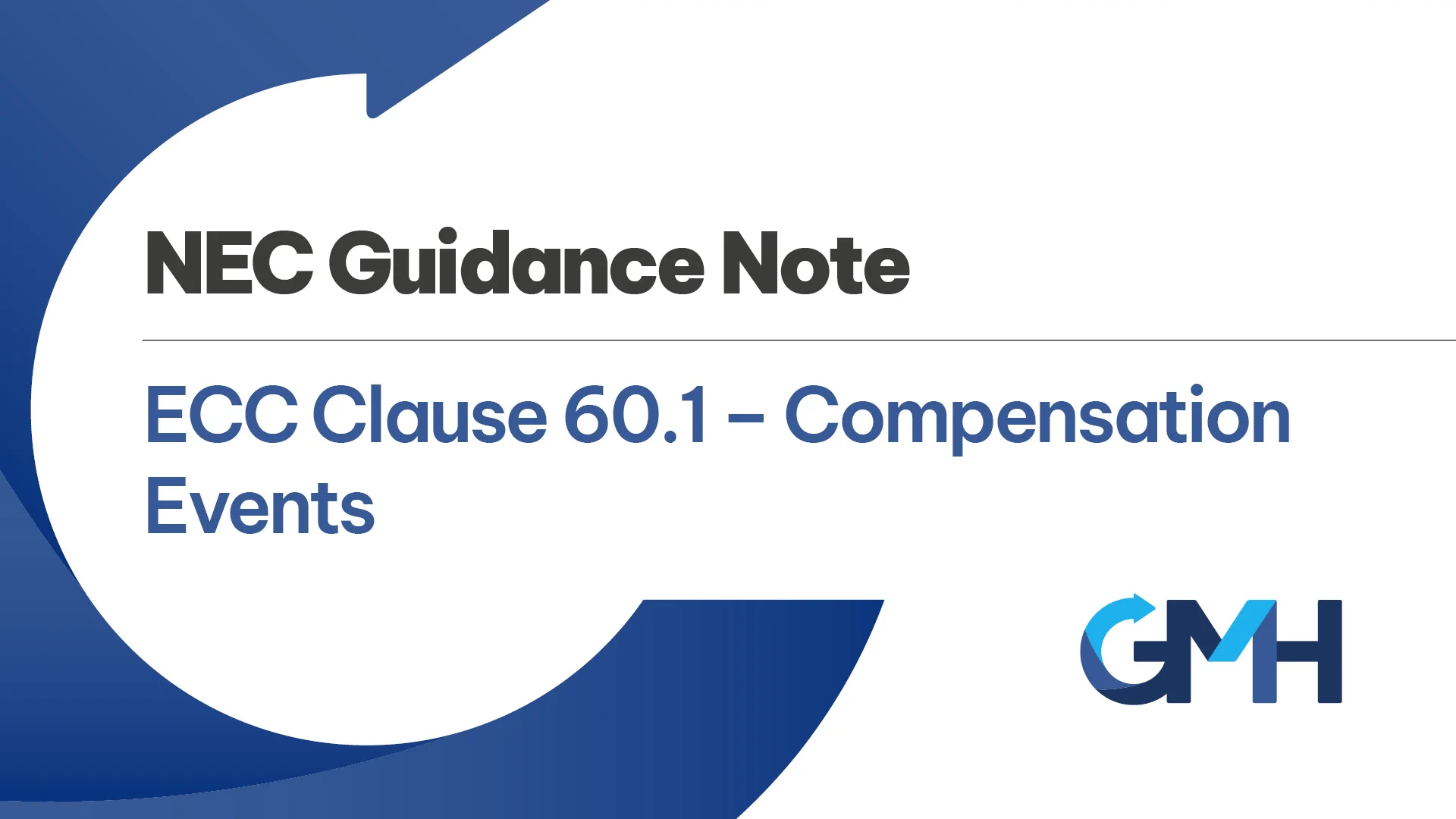Whilst early warnings are matters that could affect time cost or quality, if something has affected or will affect time, cost or quality and is something that the Contractor should not have allowed for at tender stage, then it should be assessed by both Parties as a compensation event. This will require consideration of any entitlement to additional cost and/or time. Any delay in planned Completion has to be attributable to a specific compensation event i.e. there is no mechanism for a general global claim for an ‘extension of time’ at the end of the project. It has to be attributable to individual compensation events along the way, hence an assessment of prices and time have to be reviewed for each event.
Clause 60.1 gives a list as to all of the items, that if occur, would give rise to a Contractor being able to claim a compensation event which will consider the time and cost implications of the event. For an event to be a valid compensation event it has to fit one of the reasons listed within this clause.
When a compensation event is notified, particularly when notified by the Contractor, they should clarify for which of the 21 reasons under NEC4 clause 60.1 (19 reasons under NEC3) that it is considered a compensation event. The most common reason is 60.1(1) which is a Project Manager instructing something that is a change to the Scope. It probably accounts for at least half of the compensation events on most projects. Other more common ones are 60.1(2) where the Contractor does not get access to site by the access date shown in contract data, and 60.1(12) where the Contractor experiences unforeseen conditions that an experienced Contractor would have been unlikely to have expected to have come across (still room for subjectivity in this specific one!). Weather is quite interesting under this contract, where the Contractor is deemed to have allowed for up to a “one in ten year event” for conditions such as number of days snow, rain, and temperature less that 0 degrees from the Met office. If the actual weather for a given month exceeds any of these values then that would be assessed as a compensation event. One of the last reason, 60.1(19) is not a catch all for other events, but is in fact equivalent to a “force majeure” in other contracts. It would very rarely be used. NEC4 adds 60.1(20) where proposed instructions do not go ahead the Contractor can now claim the cost of producing the quote, and 60.1(21) which is additional compensation events listed by the Client in contract data 1.
Compensation events go through a cycle of notification, quotation, assessment and conclude with “implementation” which is where any increase in the ‘Prices’ and delay to the Completion Date are confirmed. Important points of note are that:
1) You have to follow the notification (section 61), quotation (section 62), assessment (sections 63/64) and implementation (section 66) phases in order, and you can not miss out a step
2) either party can notify (which introduces an extra loop if the Contractor notifies, as the first decision to be made is whether the Project Manager agrees that the event is a compensation event).
3) the Project Manager can ultimately make their own assessment of an event if they feel the Contractor has not assessed it in accordance with the contract.
On many projects unfortunately there are likely to be numerous compensation events. The contract has mechanisms in place to try to ensure that they are agreed in a timely manner. The Project Manager has a week to agree if an event raised by a Contractor is a compensation event, the Contractor has up to three weeks to produce the quotation, the Project Manager has up to two weeks to respond to the quotation. In practice however, it can take several weeks and even months to agree the quantum of a compensation event in terms of time and cost of a single event. Only when it is agreed or the Project Manager has communicated their final assessment does it become “implemented” in the terms of the contract (clause 65.1). Sometimes this agreement will be in place well before the works are carried out, but equally there are probably more occasions that the works will have commenced and even completed before the quotation has been agreed.

